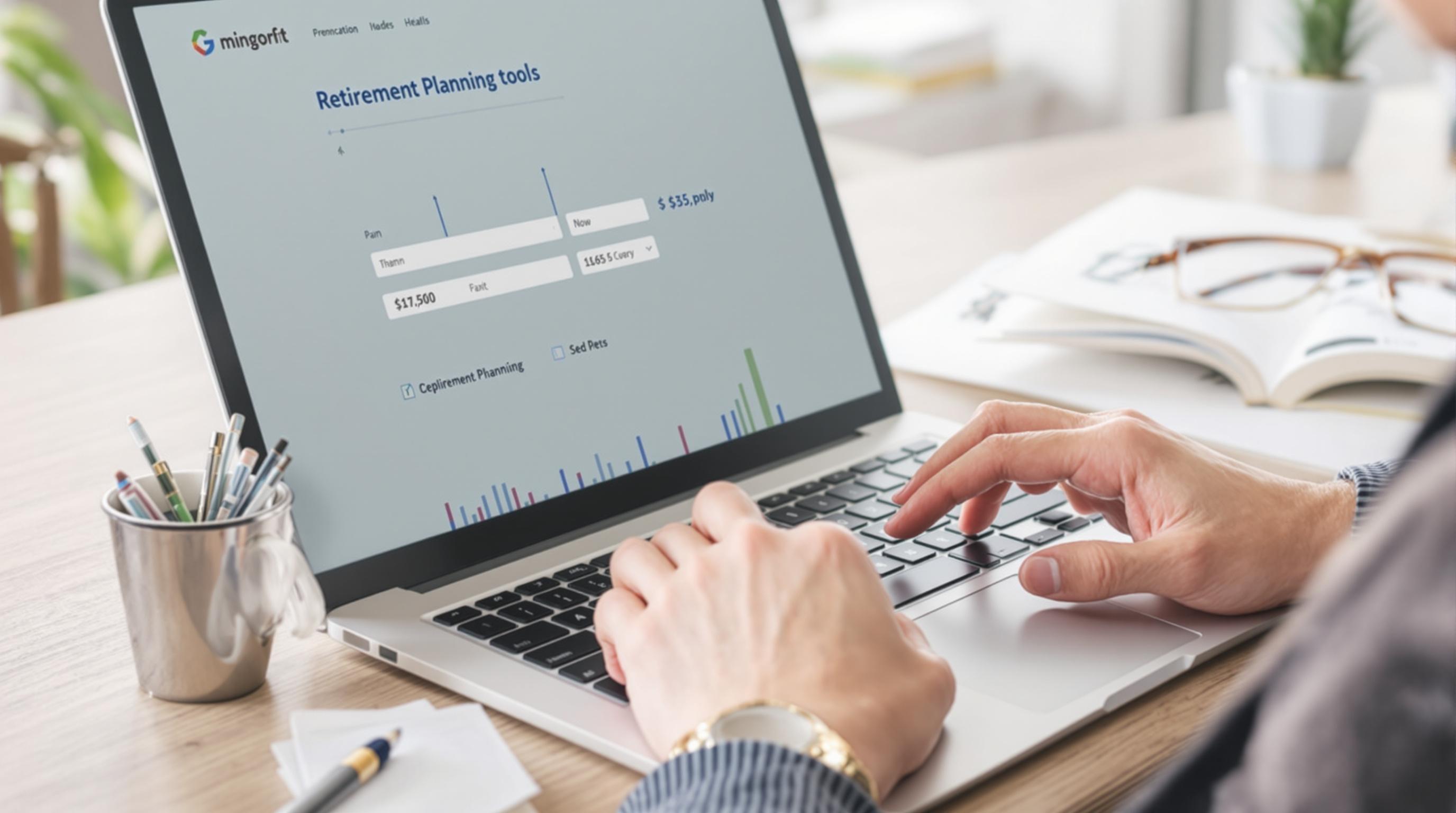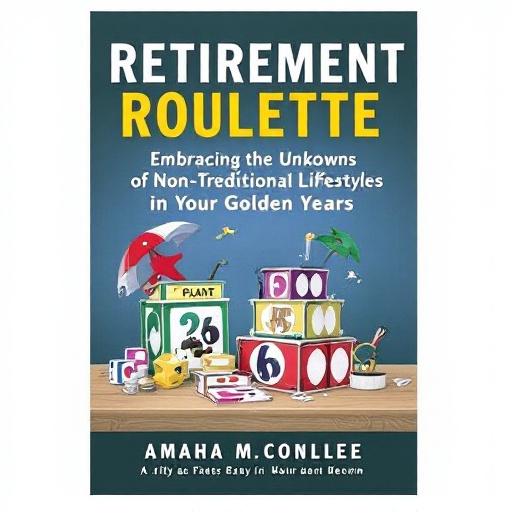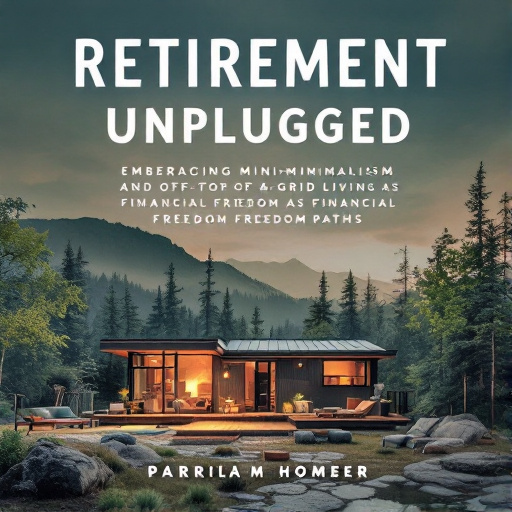Featured Articles
- "Beyond Savings: How Gardening and Hobbies Can Transform Your Retirement Plans"
- Reimagining Retirement: How Virtual Reality Could Transform Senior Living and Financial Independence
- "Rethinking Retirement: How Eco-Friendly Living Is Shaping Future Financial Planning"
- Retire in Style: Exploring the Rise of Sustainable Living Communities for Seniors
- "Retirement Reimagined: How Eco-Conscious Living is Shaping Future Financial Landscapes"
"Retirement Reimagined: How Eco-Conscious Living is Shaping Future Financial Landscapes"
"Retirement Reimagined: How Eco-Conscious Living is Shaping Future Financial Landscapes"
Retirement is undergoing a radical transformation as eco-conscious living becomes a priority in financial planning. This article explores how sustainable practices are not only reshaping retirement lifestyles but also influencing investment strategies and market trends.
The New Retirement Paradigm: A 21st-Century Approach
Picture this: you’re sitting on the porch of your tiny, solar-powered cottage looking out at a lush community garden you helped cultivate, enjoying your retirement free from the stress of financial instability. This scenario is becoming more common, as the new generation of retirees embraces eco-conscious living not only for its environmental contributions but also for its economic advantages.
What Does Eco-Conscious Living Mean?
Eco-conscious living embodies a lifestyle that prioritizes environmental sustainability, renewable resources, and reduced waste. From using solar panels and composting waste to participating in local co-ops that advocate for sustainable practices, an eco-conscious mindset permeates many aspects of daily life.
Statistics Show the Shift
According to a survey conducted by the Global Sustainable Investment Alliance (GSIA), sustainable investing grew to $35.3 trillion in assets globally in 2020, representing a 15% increase from 2018. This trend indicates that individuals are not only conscious of their impact on the planet but are also rethinking how their money is invested as they prepare for retirement.
The Financial Benefits of Going Green
While the concept of eco-consciousness might evoke images of compost bins and reusable bags, it also has significant financial implications. For instance, “green” investments—those in sustainable companies—often yield robust long-term growth. As younger investors enter the market, their preference for companies that prioritize environmental stewardship is compelling financial institutions to adapt.
Case Study: The Eco-Conscious Investor
Take Jane, a 32-year-old marketing professional who decided to invest her savings into a green energy fund. Fast forward to ten years later: Jane’s investments have tripled, and she has secured a side income through dividends. She’s now confident that her eco-conscious decisions will provide a stable source of income in her retirement, where she plans to live off the grid.
A Humorous Take on Retirement Plans
“Retirement? You mean that mythical land of golf courses and bingo games?” Some retirees joke about it, but the truth is, retirement isn't what it used to be. As the average life expectancy increases, why settle for a boring retirement filled with mundane routines? By leading an eco-conscious lifestyle, not only can you enjoy life, but you also ensure financial stability that goes beyond mere existence!
Understanding the Risks and Rewards
Investing in green technologies does bear risks. As with any investment, market fluctuations can impact returns. However, a growing body of research indicates that sustainable businesses often outperform their less environmentally-conscious peers over the long term. In fact, a study by MSCI found that companies with robust sustainability practices exhibit lower capital costs and better operational performance.
Minding Your Retirement Account
Planning for eco-conscious retirement also often means reassessing pension plans and retirement accounts. The days of stuffing cash into traditional savings accounts while ignoring growth potential are fading rapidly. For example, 401(k) plans are increasingly being designed to incorporate sustainable investing options, aligning individual values with financial growth.
Community and Eco-Consciousness
One major advantage of eco-conscious living is the community building aspect it fosters. Picture a neighborhood where everyone participates in a garden club, volunteer activities for local sustainability projects, or even decentralized energy production through co-ops. These shared experiences create bonds and networks, making for a more connected and fulfilling retiree lifestyle.
Your Retirement Village Might Look Different
For those who think a retirement village will have cookie-cutter homes and cookie-cutter activities, think again! Imagine eco-villages that embrace renewable resources: wind turbines, community gardens, or even eco-friendly communal kitchens, where residents flex their culinary muscles using fresh produce grown right in their backyards.
How Generational Perspectives Impact Planning
The key to understanding eco-conscious retirement planning lies in generational differences. An 18-year-old millennial may perceive retirement entirely differently than a 70-year-old baby boomer. According to a 2022 survey by Fidelity Investments, 62% of millennials consider environmental footprints when making investment decisions, compared to only 29% of baby boomers. This generational gap signals vital changes in future financial landscapes.
Getting Started: Simple Steps to Eco-Friendly Planning
So how can you begin making eco-conscious changes to your retirement plan? Start small: consider evaluating your current investment portfolio for sustainability. Many online platforms allow you to screen investments based on environmental impact, while others offer ready-made portfolios geared toward eco-conscious investors.
Practice What You Preach
Of course, eco-friendly investing doesn’t stop at the financial level. Living an eco-conscious lifestyle in your day-to-day life also sets a precedent for future generations. Educate your children and grandchildren about the importance of sustainability—who knows? By the time they are planning for retirement, they may be leading the charge in green investment trends.
Advice from the Experts
Renowned financial advisor J.S. Greene once said, “The future doesn’t arrive as a single moment; it arrives in bits and pieces.” He emphasizes the importance of building a sustainable financial future, urging individuals to make informed investment choices based on their values. Greene further cautions against reactive investments based solely on current trends, advocating for a well-rounded approach that incorporates eco-consciousness as a core factor.
Building a Better Tomorrow
The concept of "retirement reimagined" is about more than just financial planning; it is about envisioning a future where individuals prioritize both their well-being and the health of our planet. As more people tire of the traditional retirement path, a blend of sustainable living and financial savvy becomes key. This shift may redefine what retirement looks like and create a legacy of resilience for generations to come.
In Conclusion
Retirement does not need to mean the end of adventure or fulfillment. Instead, it can herald a vibrant chapter filled with purpose and intention, driven by eco-conscious choices and sustainable financial planning. As each person embarks on this new path, the ripple effect will shape both individual lives and the financial landscapes of the future. Make that leap—invest in a greener future today, and you’ll not only celebrate a fulfilling retirement but also help create a thriving planet for tomorrow.
As we wrap up, remember: the decisions you make today have a lasting impact. Retirement is no longer just about financial security; it's about envisioning a sustainable future and aligning your values with your investments. So take a moment to reflect on your plans—after all, you want to retire without a cloud of uncertainty hanging over your head, right?




